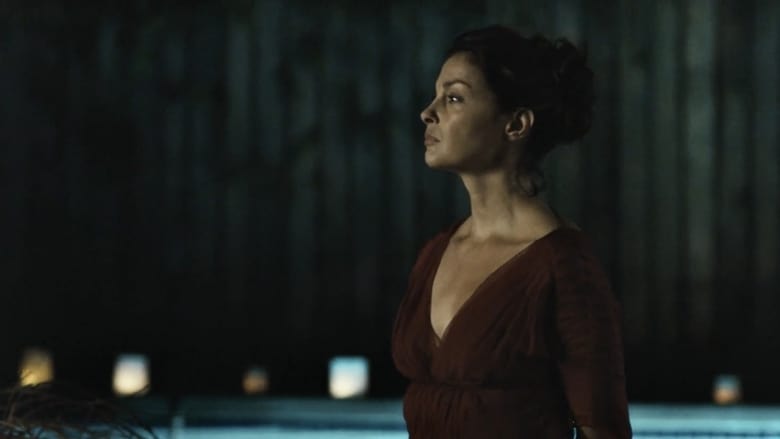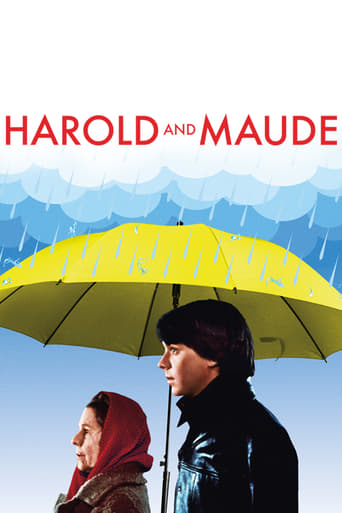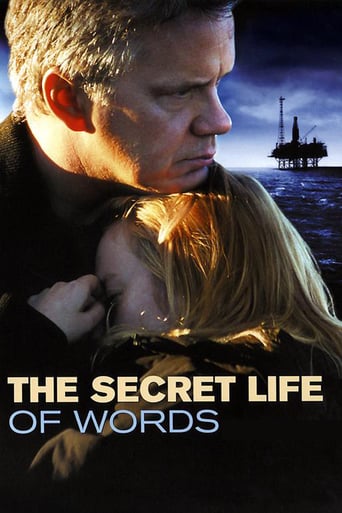

Helen (2009)
On the outside, Helen has it all – a loving family and a successful career – but when her suppressed mental illness resurfaces, the world crumbles around her. Crippled by depression, Helen finds solace through her friendship with Mathilda, a kindred spirit struggling with bipolar disorder.
Watch Trailer
Cast


Similar titles
Reviews
During the movie at time 55:35, in the parking lot sucker punching scene, you can see a GIANT MAT that the guy lands on after being punched.During the movie at time 55:35, in the parking lot sucker punching scene< you can see a GIANT MAT that the guy lands on after being punched.During the movie at time 55:35, in the parking lot sucker punching scene< you can see a GIANT MAT that the guy lands on after being punched.During the movie at time 55:35, in the parking lot sucker punching scene< you can see a GIANT MAT that the guy lands on after being punched.
At first I didn't like this movie a whole lot. As other reviewers have already pointed out, it's merciless in its stereotypical portrayal of people: every character in the movie is a royal jerk except for the 2 depressed people, and it gives the impression that all doctors are cold-hearted sadists, all spouses are selfish psychos, and people in general are totally apathetic.But hold on...Then it suddenly dawned on me, duh, that's exactly how one views the world when one is in the throes of depression. I believe it wasn't the filmmakers' intent to make an objective film. I think they were out to show us a somewhat skewed perspective through the eyes of a depressed person. At that, it's very successful.So yes, this is a depressing movie. It's dark. It's irritating. It makes you feel like the world is a sucky place. But if, for some bizarre reason, you want to know what it's like to be depressed, then this is the movie for you.I can't say that I "enjoyed" it (I'm no masochist!) but I can say that it's very well made, with excellent acting, effective cinematography (good use of focus & blurring), and a fitting musical score. Just as "Peewee's Big Adventure" takes us into the mind of a manically happy person with its cartoon colours and bouncy pace, "Helen" shows us the opposite side of the coin with its darkness, bleached visuals and monotonous presentation. If you want to know what it's like to be bipolar, I suppose you could watch the 2 movies back to back.Movies like this: "House of Sand and Fog" (or as I like to call it, "House of Sand and Why Don't We Just Slit Our Wrists and Save Ourselves the DVD Rental Fee") and "Leaving Las Vegas". All of these are excellent films. But wow, hide the sharp metal objects before viewing.
An underdeveloped story in a genre that needs careful crafting to make sure the tale is one of a character afflicted with a disease and not just a treatise on the disease itself. Unfortunately, in this overlong, skimpy story we get no real idea of who Ashley Judd's character is. How does she live when she's holed up in a (Hollywood-style "gritty") warehouse? Where does she get her money from? It's terribly convenient that she has a student with the same disease who, when it's convenient for her to leave, jumps off a rooftop so that Judd can return to her husband. Too many scenes of Judd crying in a fetal position, or just acting dumb (pouring milk on the floor) doesn't make for a good examination of the way a character we really know and understand can fall prey to this malady. Slow, boring and too reliant on electroshock as the answer with no examination of other aspects of the character's background. Also totally unbelievable for anybody familiar with this disease is the idea that her new husband and daughter would have no indication that Judd's character had been depressed before with husband number 1. Moreover she'd have definitely suffered from some indicative episode of depression before succumbing full bore to another attack. Again, the movie is too schematic a dramatic presentation.
Sandra Nettlebeck both wrote and directed this somber, intense study about clinical depression. The film is long, is a one-note song, and is in need of editing and lightening - or is it? What Nettleback has created is an atmosphere that very likely simulates the way the world is viewed and coped with by those who are suffering from suicidal depression. It is a lesson as much as it is a film. Helen (Ashley Judd) is a popular professor of music theory, and accomplished pianist, and the wife of handsome and successful lawyer David (Goran Visnjic), and mother of a charming teenager Julie (Alexia Fast) all of whom we meet at a surprise birthday party for Helen. But very gradually Helen begins to change from the ebullient happy woman to a more quiet, pensive, obviously injured woman. Concentration fails, she cannot get enough sleep, her connection to the world begins to crumble and finally she breaks into the depths of depression. Despite the support of David and Julie and denying the medical assistance of psychiatrist Dr. Sherman (Alberta Watson), Helen continues to sink deeper into the profound sadness of clinical depression. One of Helen's students, Mathilda (Lauren Lee Smith) seems to be one of the few people with whom Helen can relate: we are lead to discover Mathilda suffers from a similar disorder. The truth about Helen's medical history finally surfaces: she has had suicidal ideation and clinical depression in her past When married before to Frank (David Hewlett) and soon after the birth of Julie (?postpartum depression?) Helen required psychiatric hospitalization, her marriage failed, and she ultimately met David who has been the ideal husband and father for Julie. Helen escapes her home, is hospitalized and undergoes shock therapy after a suicide attempt - her only apparent understanding contact is the nebulously drawn Mathilda. How Helen emerges from her illness and reorganizes her life is the ending of the film. The film benefits greatly from the moody musical score by Tim Despic with the aid of James Edward Barker ( and Schumann and Schubert...) and the mood is kept appropriately dark by the cinematography by Michael Bertl. The quartet of actors - Judd, Visnjic, Smith, and Fast) - are outstanding as is the well selected group of actors for supporting roles. But for this study of the depths of depression - mostly dark scenes of Helen lying in bed or weeping - is, at two hours, a bit more than an audience can handle. In order to appreciate the quality of this film the viewer must accept the fact that the main point of the film is a study of the crippling illness of depression. And that it does extremely well. Grady Harp












